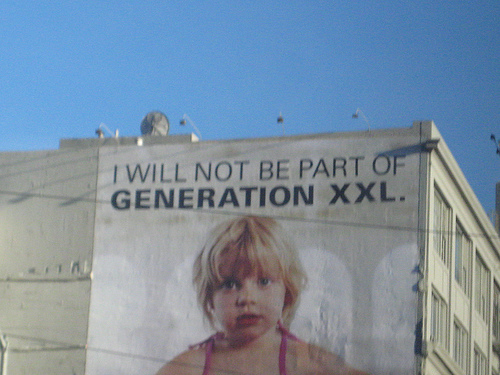Please watch the following link for today's Throwback
Thursday Post. It's a weight loss commercial from the 1950's:
A good place to start is with the narrator. This commercial features a slender, white man
speaking to an audience of overweight people.
He doesn't specify which gender he is directing this product to, but
because he is a white man in the 1950s, he has a lot of privilege and power, so
for anyone other than a white man watching this commercial, it has a sort of
tone of superiority. "If you don't
look like me, then you need this!"
In an authoritative voice he proclaims that he has the
product that will help the audience lose "UGLY FAT." There isn't much
else to say about that--our privileged narrator has started off by telling the
audience that FAT IS UGLY, and thus NOT beautiful, equal, or worthy.
He also makes weight loss seem very easy when he says that
you can even eat three meals a day AND a bedtime snack. This not only spreads the terrible idea that
you only have to take a pill and then you can eat all the unhealthy food you
want, but also perpetuates the idea that fat people are lazy and don't want to
change their lifestyles in a healthy way.
Fat people only want (or should only want) to lose weight to look good.
In addition to making weight loss seem simple and even
indulgent--note the desserts and chocolate cake (EVERY FATTY LOVES THAT STUFF
AND CAN'T RESIST IT)--The narrator repeatedly tells the audience about how
inexpensive the product is. From a place of privilege he tells that audience
that they have easy access and affordability to this product, and he implies
that they would be crazy NOT to buy and use it to lose their UGLY FAT. He even
uses a bandwagon approach to supplement the low price, telling the audience to
join their friends in weight loss.
When the narrator encouragingly tells his viewers,
"Don't lose hope, lose weight," he is doing some serious damage and a
great disservice to all fat people. He
is telling viewers, including the skinny ones, that fat people are depressed
and without hope, implying that it is pointless to live unless you look like he
wants you to look.
Even though this commercial is definitely a throwback, what
is most disturbing is how pervasive many of the ideas presented STILL exist in
weight loss advertising today.
Most weight loss product commercials of today are very
similar; generally they include testimonials, "science", and the
convenience factor. Take a look at this
example from Nutrisystem:
One of the things you may not have picked up on immediately
when viewing this commercial is the use of a male narrator. Yes, even in 2014, we still have a male
figure telling us to lose weight. While
he is a disembodied voice, he is still there, constantly speaking in between
the "hot moms." This time, he
is a little nicer, hiding behind the principles of "science." He
doesn't tell us that fat people are depressed, so at least we've come that far
in 60+ years. Instead, he tells us about
the "proven science of glycemic index blah blah blah" that we are
supposed to trust because there are colorful letters and numbers flashing on
the screen next to their product. But he
makes a big mistake that has led to a lot of social problems with the ideas of
health and weight loss: after he talks about the "science," these
women all give their testimonials and swirl around in their swimsuits, purely
focusing on appearance rather than actual health.
The camaraderie between the hot moms is this commercial's
example of the bandwagon approach. As women, these moms are awesome for being
moms (their "biological duty") but they are SUPER AWESOME for wanting
to be hot after they've given birth. Of course all women need to get in shape
after having children, and this commercial targets viewers to make them jump on
the bandwagon. They don't stop at that, though--they also celebrate the
"convenience factor" like the 1950's counterpart.
Perhaps one of the most important parallels between these
two commercials is this horrible idea that has been etched into our society's
skin: To be healthy, you have to be beautiful, and to be beautiful, you have to
be healthy. This goes back to what we talked about on the most recent Fat Myth
Monday. Health and beauty are tied together, and this is something that Gribbski
believes needs to change. You can see from these commercials that this has been
going on for AT LEAST 60ish years. One of the reasons we are even writing this
blog is to try and untwist these ideas.
Unfortunately, a lot of people (especially teenagers) get the message
that healthy has only one face.
Despite the (wholly unhelpful and ridiculous) addition of
"science," testimonials, and the celebrity endorsement, weight loss
commercials have really not progressed in their attitudes towards fat people,
their beliefs about health and beauty, or their insistence on the fact that fat
is mutually exclusive from health and beauty. We wanted to share the throwback commercial
with you as well as the modern commercial to show how deeply rooted anti-fat
attitudes are in our culture. As long as people keep listening to
"research" that only mainstream media publishes, buy into the idea
that thinner is better, and underestimate their own self worth based on weight,
it will be very difficult to change anti-fat attitudes.

A very flattering example of just what we're up against.
No comments:
Post a Comment